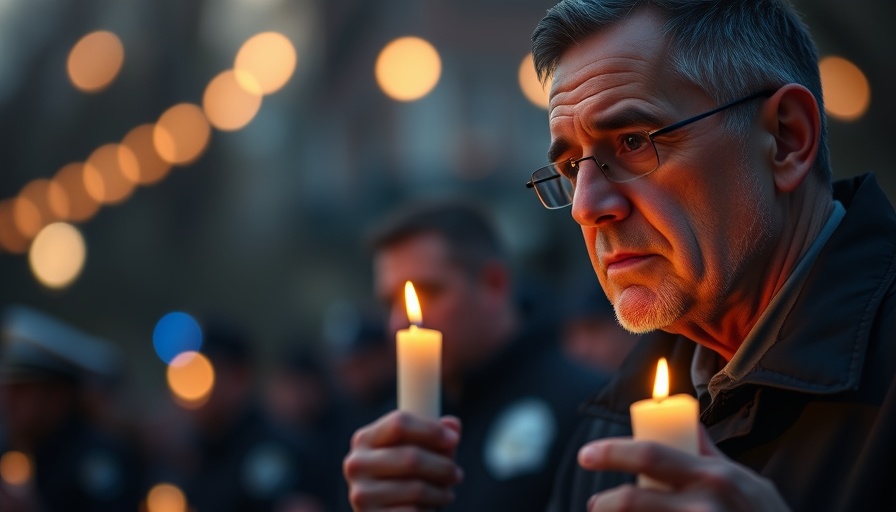
Understanding National Police Week: A Deep Dive into Its Significance
National Police Week (NPW) stands as a poignant reminder that behind the badge lies a profound commitment to service and the weight of sacrifice that law enforcement officers bear. This event encapsulates stories of loss, honor, and community, weaving together families and officers from diverse backgrounds in a tapestry of shared grief and remembrance.
Creating Bonds: Emotional Healing through Shared Experiences
The emotional journey of NPW is immeasurable. Each year, thousands of officers and their families gather for a week of catharsis and unity, channeling their grief into collective resilience. Attending the Candlelight Vigil, for instance, offers an unparalleled atmosphere of support. Individuals standing shoulder to shoulder in silence, holding candles, come to understand that they are part of something much larger than themselves—a community bound by courage and shared experiences. The stark contrast of day-to-day policing with moments of profound honor prompts reflection on the importance of mental health support for officers.
Beyond Remembrance: Workshops That Equip and Empower
Central to NPW are the invaluable workshops and seminars provided by Organizations like Concerns of Police Survivors (C.O.P.S.). These sessions, led by expert counselors, focus on the unique grief experienced by officers and their families. They emphasize practical insights and coping mechanisms while fostering open discussions about officer wellness and community trust. This dimension of NPW demonstrates a proactive approach in addressing the challenges faced by modern law enforcement personnel, serving not just as a retrospective touchstone but as an empowering initiative that equips attendees with tools for ongoing healing and resilience.
The Role of Ceremony in Building Community Trust
The ceremonial aspects of NPW—particularly the National Peace Officers’ Memorial Service—are integral in fostering public trust. These solemn gatherings draw attention to the sacrifices made by officers and the implications of their loss for the community. As public safety officials, it is vital to recognize how these observances enhance transparency and demonstrate accountability in policing. Such recognition is crucial in addressing concerns of police use of force and building trust metrics between law enforcement and the communities they serve.
Crisis Management: The Importance of Leadership Training
As policing strategies evolve in response to contemporary challenges, leadership training remains paramount. Weekly programs during NPW not only memorialize fallen officers but also inspire current officers to improve upon existing policing ethics and adapt to technology trends. Discussions may span topics from crisis response management to innovative policing approaches, ensuring that attendees return with a renewed sense of purpose and a clearer understanding of their roles within communities.
The Future of Policing: Insights and Innovations
As policing confronts an era defined by technological advancement and critical reform efforts, NPW provides fertile ground for dialogue. Law enforcement agencies need to focus on smart policing and predictive policing benefits as they engage with citizens. Embracing public safety technology can streamline operations and bolster community engagement. Establishing trust through transparency begins at events like NPW, which encourage open dialogue about the role of policing in American society today.
In conclusion, attending National Police Week is not simply about honoring the past; it is an investment in the future of policing and community safety. It highlights the essential role that emotional health plays in policing and underscores the need for ongoing community engagement and support systems. To law enforcement agencies, policymakers, and community stakeholders: seize the opportunity to learn from NPW and contribute positively towards reform efforts and building trust within the communities.
 Add Row
Add Row  Add
Add 

 Add Element
Add Element 




Write A Comment